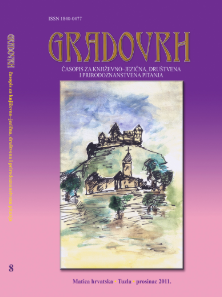Postcolonialism and Second World Cultures
Postcolonialism and Second World Cultures
Author(s): Demir AlihodžićSubject(s): Cultural Anthropology / Ethnology, WW II and following years (1940 - 1949), Theory of Literature, Identity of Collectives
Published by: Matica Hrvatska Tuzla
Keywords: postcolonialism; Second World cultures; postcolonial theory and literature;
Summary/Abstract: Postcolonial countries have a special urge to assert a unique national or local identity--often through narrative--as an alternative to the marginalization and distortion of their image in imperialist characterization. A version of this impulse is also present in Second World cultures, an impulse to assert that they are no longer temporary British visitors, nor mere “backwoods colonials” or “dutiful (but inferior) offspring” of the Empire. However, when it comes time to define what being a post-colonial Australian or Canadian means, their ambivalent position presents particular difficulties. Until recently, postcolonial theory and criticism largely ignored Second World cultures (Australia, Canada, and New Zealand). Both colonized and colonizing, these predominantly white, Anglo-Celtic cultures were considered too ambivalent towards their imperial heritage to produce significant forms of literary resistance to it. But now ambivalence is recognized as inherent in the colonial experience, and scholars are reconsidering what can be learned from the former settler colonies. In this paper, I situate this issue within the larger context of postcolonial studies, and define some key terms.
Journal: Gradovrh - časopis za književno-jezična, društvena i prirodnoznanstvena pitanja
- Issue Year: 2011
- Issue No: 8
- Page Range: 47-56
- Page Count: 10
- Language: English

